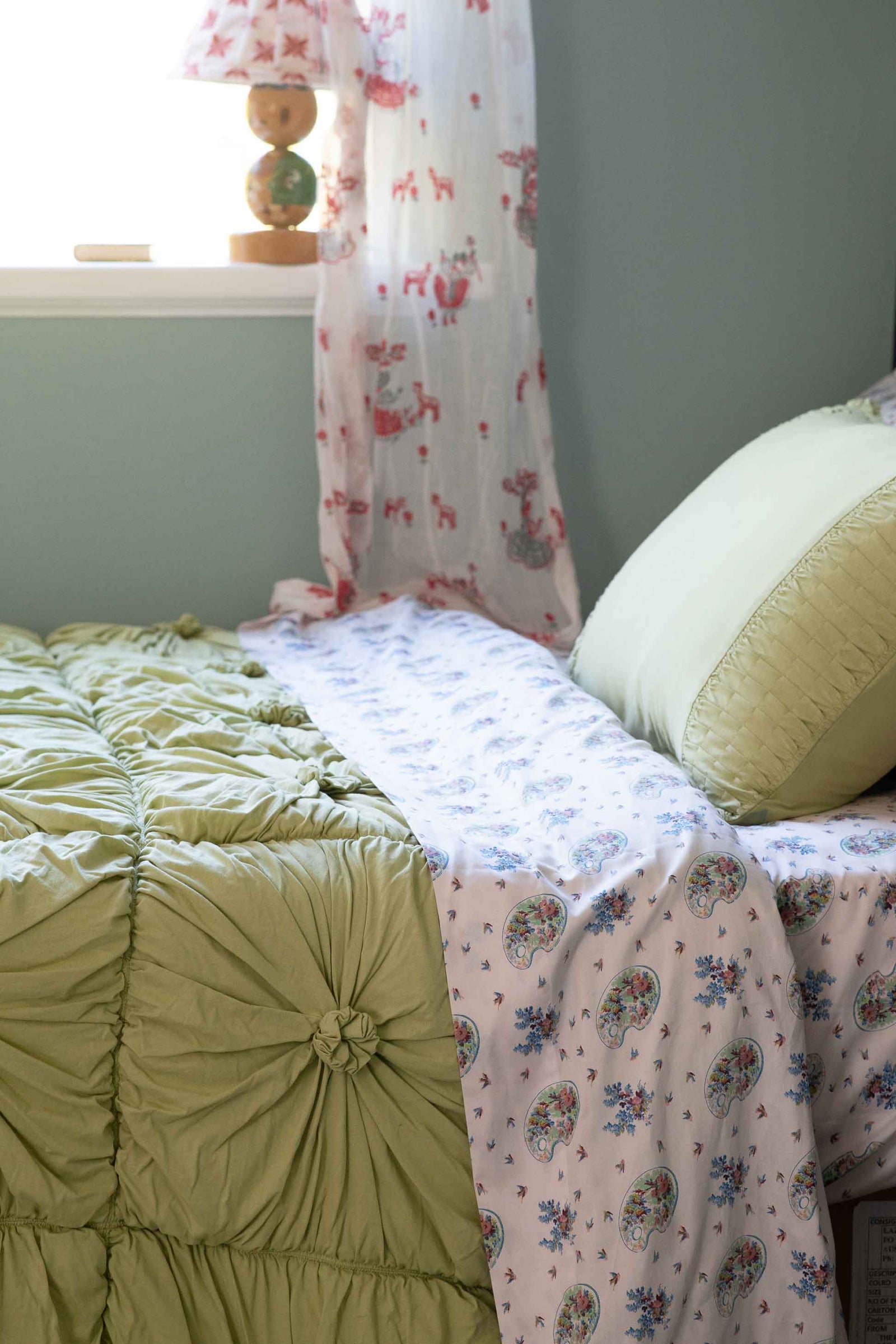What is GOTS?

GOTS stands for Global Organic Textile Standard.
It is an international standard for textiles made with organic fibres.
The supply chain for GOTS textiles must be compliant to a high-level of environmental and social criteria.
To follow are the key criteria for fibre production and processing & manufacturing as described on the GOTS website.
The key criteria for fibre production can be identified as:
- Organic certification of fibres on basis of recognised international or national standards (IFOAM family of standards, EEC 834/2007, USDA NOP)
- Certification of fibres from conversion period is possible if the applicable farming standard permits such certification
- A textile product carrying the GOTS label grade ‘organic’ must contain a minimum of 95% certified organic fibres whereas a product with the label grade ‘made with organic’ must contain a minimum of 70% certified organic fibres
Key criteria for processing and manufacturing include:
Environmental Criteria
- At all stages through the processing organic fibre products must be separated from conventional fibre products and must to be clearly identified
- All chemical inputs (e.g. dyes, auxiliaries and process chemicals) must be evaluated and meeting basic requirements on toxicity and biodegradability/eliminability
- Prohibition of critical inputs such as toxic heavy metals, formaldehyde, aromatic solvents, functional nano particles, genetically modified organisms (GMO) and their enzymes
- The use of synthetic sizing agents is restricted; knitting and weaving oils must not contain heavy metals
- Bleaches must be based on oxygen (no chlorine bleaching)
- Azo dyes that release carcinogenic amine compounds are prohibited
- Discharge printing methods using aromatic solvents and plastisol printing methods using phthalates and PVC are prohibited
- Restrictions for accessories (e.g. no PVC, nickel or chrome permitted)
- All operators must have an environmental policy including target goals and procedures to minimise waste and discharges
- Wet processing units must keep full records of the use of chemicals, energy, water consumption and waste water treatment, including the disposal of sludge. The waste water from all wet processing units must be treated in a functional waste water treatment plant.
- Packaging material must not contain PVC. Paper or cardboard used in packaging material, hang tags, swing tags etc. must be recycled or certified according to FSC or PEFC
Technical Quality and Human Toxicity Criteria
- Technical quality parameters must be met (s.a. rubbing, perspiration, light and washing fastness and shrinkage values)
- Raw materials, intermediates, final textile products as well as accessories must meet stringent limits regarding unwanted residues
Social Criteria
Social criteria based on the key norms of the International Labour Organisation (ILO) must be met by all processors and manufacturers. They must have a social compliance management with defined elements in place to ensure that the social criteria can be met. For adequate implementation and assessment of the following social criteria topics the listed applicable key conventions of the International Labour Organization (ILO) have to be taken as the relevant basis for interpretation.


